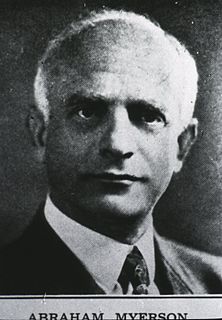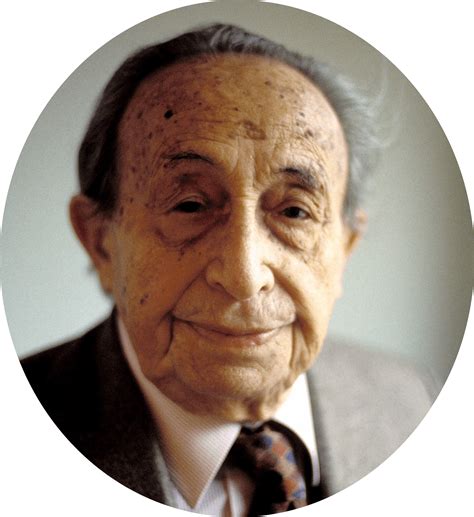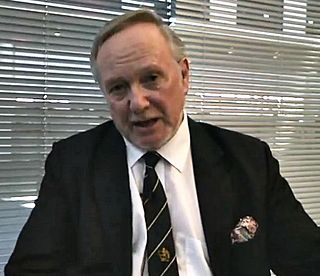A Quote by Abraham Myerson
Man uses his intelligence less in the care of his own species than he does in his care of anything else he owns or governs.
Related Quotes
When a woman submits to a man, it's the most precious gift she can give. Herself. Unreservedly. The man has to respect and honor that gift above all else. Even if he respects nothing else in the world, he must respect the woman in his care. It's his sworn duty to protect, honor and cherish his submissive. To take care of her and provide a safe haven. Someone who would put his own needs above his woman's is no man.
An Athenian citizen does not neglect his state because he takes care of his own household; even those of us who are engaged in business have a very fair idea of politics. We do not regard a man who takes no interest in public affairs as harmless. We do not say that such a man 'minds his own business'. Rather we say he has no business here at all.
The wise man does nothing but what can be done openly and without falseness, nor does he do anything whereby he may involve himself in any wrong-doing, even where he may escape notice. For he is guilty in his own eyes before being so in the eyes of others; and the publicity of his crime does not bring him more shame than his own consciousness of it.
When a man spends his own money to buy something for himself, he is very careful about how much he spends and how he spends it. When a man spends his own money to buy something for someone else, he is still very careful about how much he spends, but somewhat less what he spends it on. When a man spends someone else's money to buy something for himself, he is very careful about what he buys, but doesn't care at all how much he spends. And when a man spends someone else's money on someone else, he does't care how much he spends or what he spends it on. And that's government for you.
His face set in grim determination, Richard slogged ahead, his fingers reaching up to touch the tooth under his shirt. Loneliness, deeper than he had never known, sagged his shoulders. All his friends were lost to him. He knew now that his life was not his own. It belonged to his duty, to his task. He was the Seeker. Nothing more. Nothing less. Not his own man, but a pawn to be used by others. A tool, same as his sword, to help others, that they might have the life he had only glimpsed for a twinkling. He was no different from the dark things in the boundary. A bringer of death.
Because one species is more clever than another, does it give it the right to imprison or torture the less clever species? Does one exceptionally clever individual have a right to exploit the less clever individuals of his own species? To say that he does is to say with the Fascists that the strong have a right to abuse and exploit the weak - might is right, and the strong and ruthless shall inherit the earth.
It is God's earth out of which man is taken. From it he has his body. His body belongs to his essential being. Man's body is not his prison, his shell his exterior, but man himself. Man does not "have" a body; he does not "have" a soul; rather he "is" body and soul. Man in the beginning is really his body. He is one. He is his body, as Christ is completely his body, as the Church is the body of Christ
































